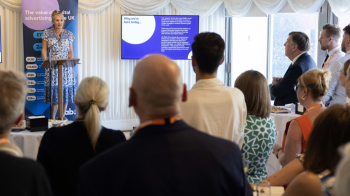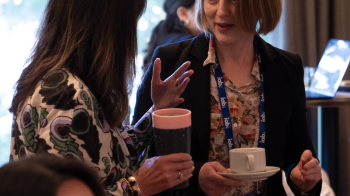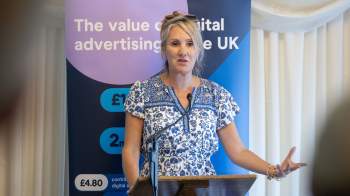Online Advertising Programme could be a huge opportunity – if we engage with change
Posted on Wednesday 01 June 2022 | IAB UK
Our Head of Policy and Regulations, Christie Dennehy-Neil explains the scope and implications of the Online Advertising Programme. This piece was first published by The Media Leader in May 2022.
Since it launched back in March, the Government’s consultation on the Online Advertising Programme (or OAP for short) hasn’t generated a huge amount of noise in the industry press. Overshadowed by the Online Safety Bill and without any concrete outputs to grab headlines, it may seem at first glance like there isn’t much to say about the OAP or that it’s nothing to worry about yet. Plus there is nothing quite like the term ‘Government consultation’ to get people to tune out. Please don’t, I promise this is worth your while.
Of all the Government consultations that I have worked on in seven years at the IAB, this one is the most far-reaching and has the most potential to change our industry. And when I say ‘our industry’ I mean everybody – from brands to publishers to ad tech, anyone whose business is involved in creating, serving or is funded by digital advertising will be impacted by the OAP.
If you’re thinking “but I don’t usually need to pay attention to Government consultations”, the OAP is different. For better or worse, it could entirely change the rules – and laws – that govern digital advertising and the companies engaged in it. It’s therefore essential that we – the IAB, our members and the wider industry – push the Government to take a nuanced, evidence-led approach that will address issues in a targeted way without damaging our diverse, ad funded web.
But before I continue, what actually is the OAP? Essentially, it’s reviewing how all paid-for digital advertising, and the companies involved in buying and selling it, are regulated in the UK. It will be assessing the entire regulatory framework for online advertising to understand what works and what doesn’t – all through the lens of addressing both legal and illegal ‘harms’.
That’s a very top line explanation (you can find more detail here) but you get the idea. The OAP is a big deal and, if there is one thing we do know, it’s that there will be changes made to how digital advertising is currently regulated. We don’t yet know what form these will take, but there are essentially three broad outcomes on the table:
1. Self-regulation is largely maintained, bolstered by industry-led efforts such as formally adopting the ASA’s Intermediary & Platform Principles (currently subject to an industry pilot).
2. A co-regulatory arrangement is adopted where self-regulation is maintained but a statutory regulator is introduced as a backstop to some or all parts of the advertising rules.
3. A full statutory approach is taken where self-regulation is abandoned and a statutory regulator is given rule-making, sanctioning and information-gathering powers.
It’s worth noting that these outcomes aren’t necessarily mutually exclusive – what’s right for one challenge within the industry might not work for another.
I know that the prospect of change on this level sounds pretty daunting, but I think it’s important to realise that the OAP is a huge opportunity for all of us to help positively evolve digital advertising. It’s our chance to champion the good work that is being done in terms of industry-led standards and initiatives and to tackle the challenges that need to be addressed.
So often regulation is seen as a negative or hostile development, but the OAP shouldn’t be a vehicle for more or blunt regulation. It should – if we as an industry engage with it and the Government listens – mean better and more effective regulation founded in robust evidence, that targets the areas of highest risk to consumers. It should mean a greater appreciation for the ad-funded digital ecosystem that we all enjoy. And it should mean more coordination and consistency from the Government on regulating digital advertising in a joined up, coherent way.
At the IAB, our consultation response will be focused on putting forward sound evidence to show what is currently working well and how the industry is proactively driving self-regulation forward, whether that’s via the IAB Gold Standard or the ASA/CAP system. Yet we will also be realistic about the fact that there are some gaps in the current framework where issues need more attention, as well as what we think the most appropriate solutions are. A perfect example of this is scam ads, which are currently falling into a regulatory crack between the ASA and law enforcement. The OAP has the ability to fill this, creating more coordination between industry, law enforcement, and existing regulators.
However, while there are clearly issues that need addressing, this needs to be done in a way that doesn’t damage what is currently working. Rather than overhauling all parts of the current regulatory system in a bid to be seen to be doing something, the Government needs to take a nuanced, evidence-led approach that will effectively address the issues while protecting the functionality of the ad funded web we all enjoy. This is what the IAB will be pushing for and we’re calling on the wider industry to do the same.
If this doesn’t happen and we end up with the full statutory approach (aka the third option listed above), we stand to see vast disruption to the digital ecosystem, growth hampered, and the diversity of digital media sharply curtailed. This is a very real risk if we don’t collectively engage with the consultation. Decisions will be made for us based on the input of others and we will end up with badly designed, poorly implemented, and ineffective regulation that won’t add value for consumers. It will make doing business more expensive and make the market less competitive.
While different areas of our industry will have different priorities and concerns, I think we can all agree that option three works for no one. None of the available evidence supports such drastic intervention and it’s essential that we come together to assert that challenges can be addressed more effectively in a targeted, proportionate way.
So what should you be doing? With just two weeks to go until the consultation closes, it’s crucial that as much of the industry as possible is engaging with the OAP and submitting responses to the consultation. If you’re an IAB member, please get in touch with us to feed into our response, but also make sure that you’re putting forward your own response. We can help with this if you drop us a line. There is an element of strength in numbers here, and DCMS wants to hear from all parts of the digital advertising supply chain, companies both large and small.
As an industry, this is our opportunity to help bring about positive change and shape the future of digital regulation. It’s a collective opportunity, but it rests on individual action. Don’t hesitate to get involved.
Related content
IAB UK manifesto for growth in digital advertising
Learn moreCAP issues updated LHF guidance for consultation
Learn moreGovernment confirms brand ads exemption in LHF ad ban
Learn moreIAB UK responds to ICO call for views on regulatory approach to low-risk advertising
Learn more
Fast forward to 2030 with Futurescape
An in-depth exploration of the attitudes, innovations and media shifts that will shape the years ahead and redefine how we advertise by the turn of the decade



